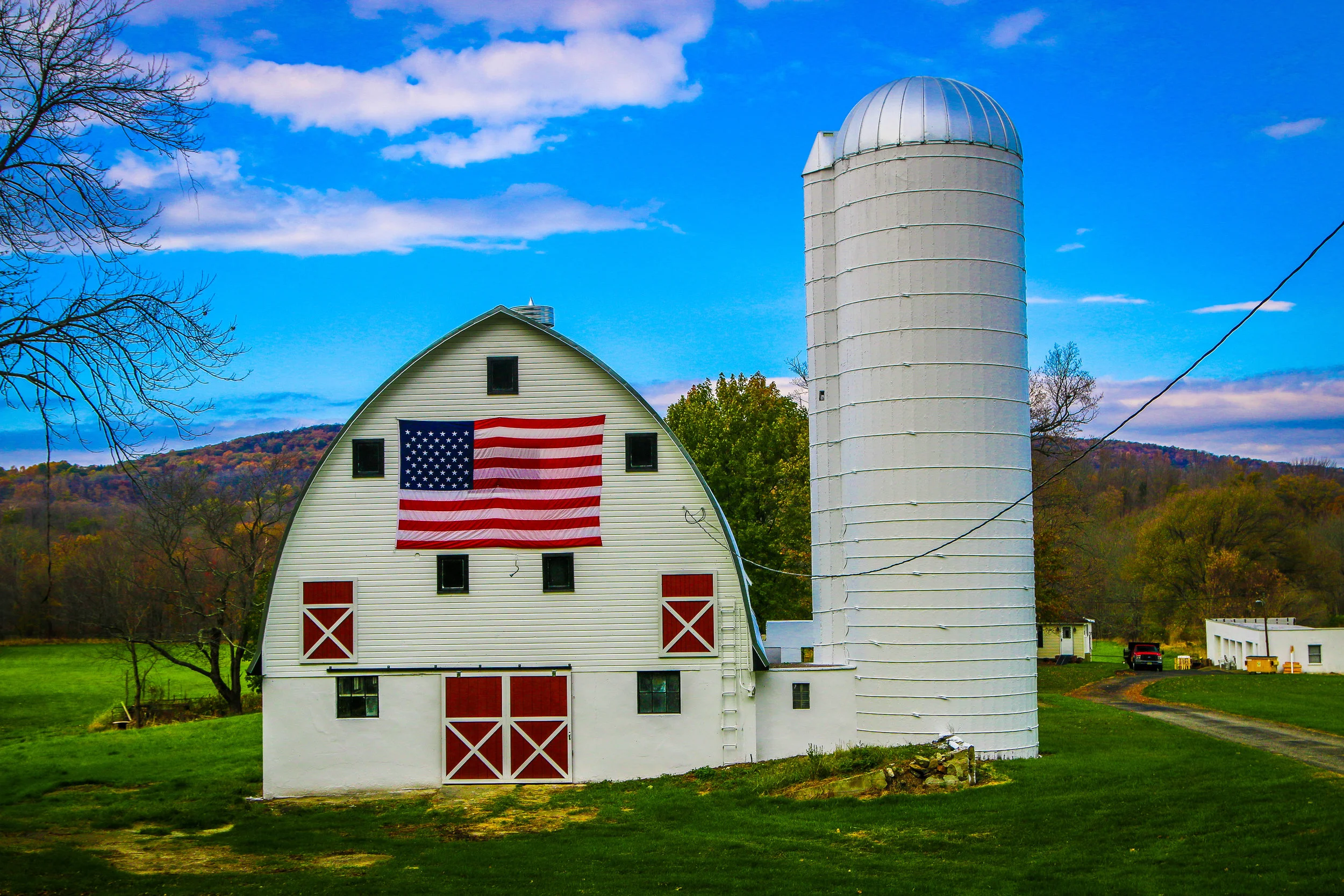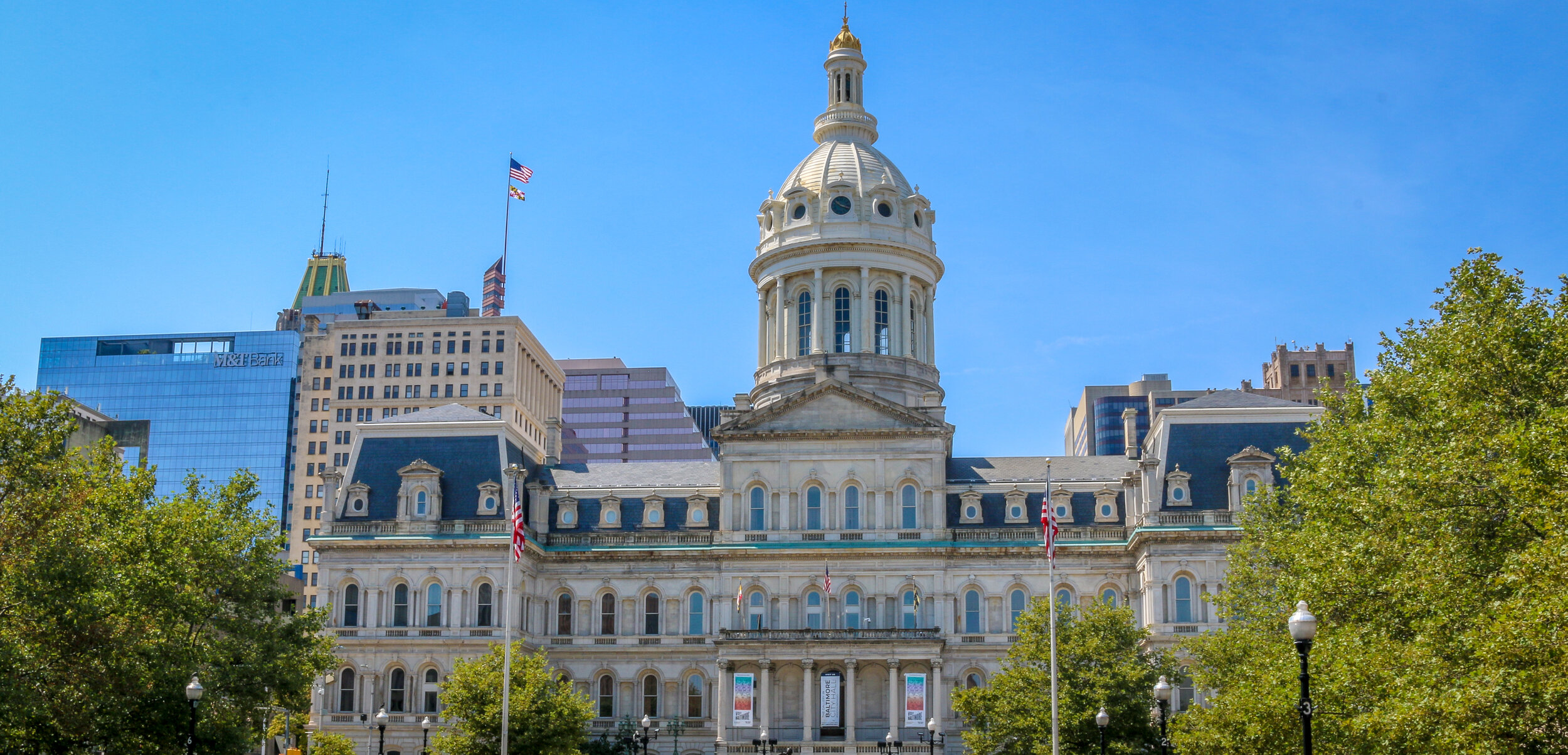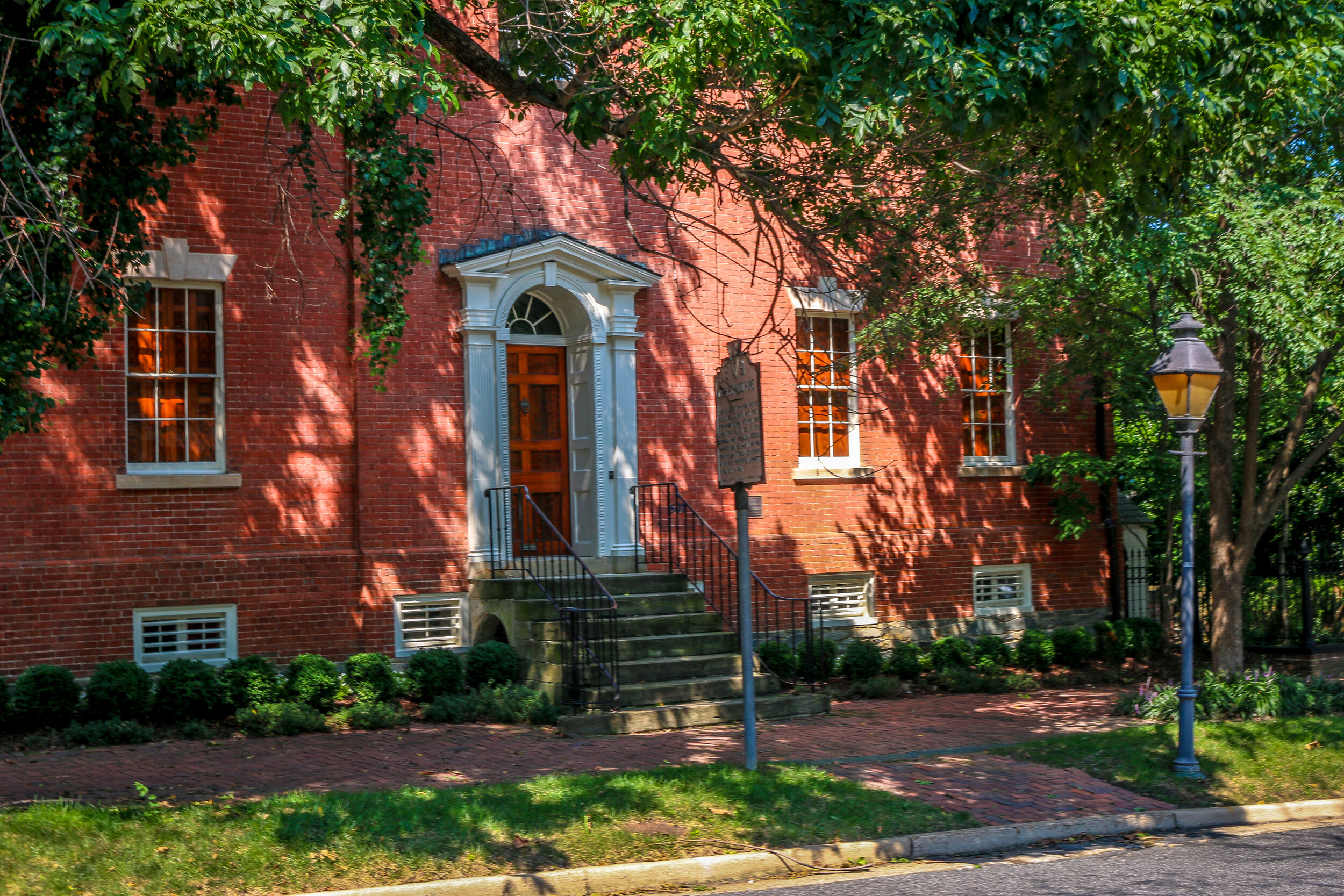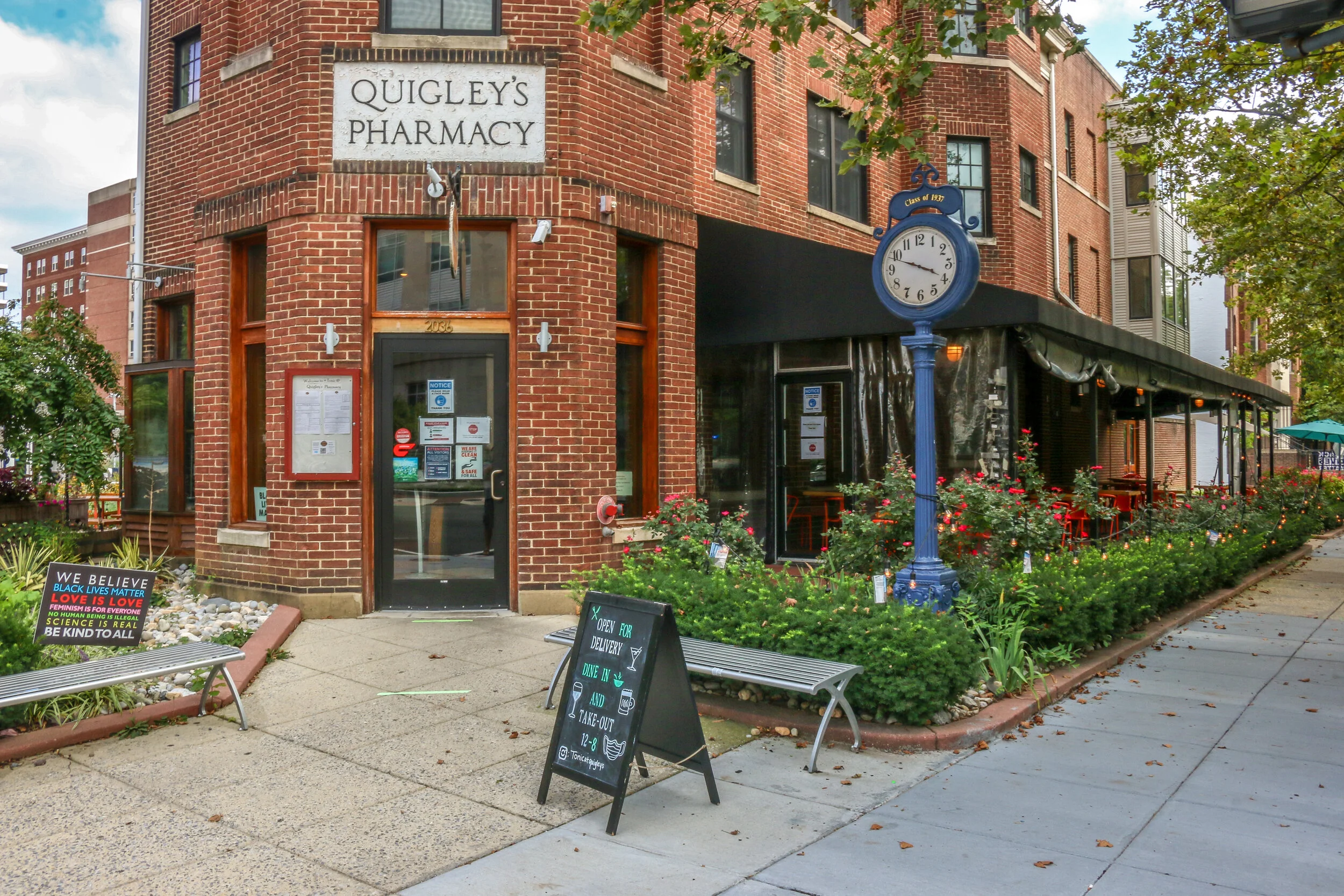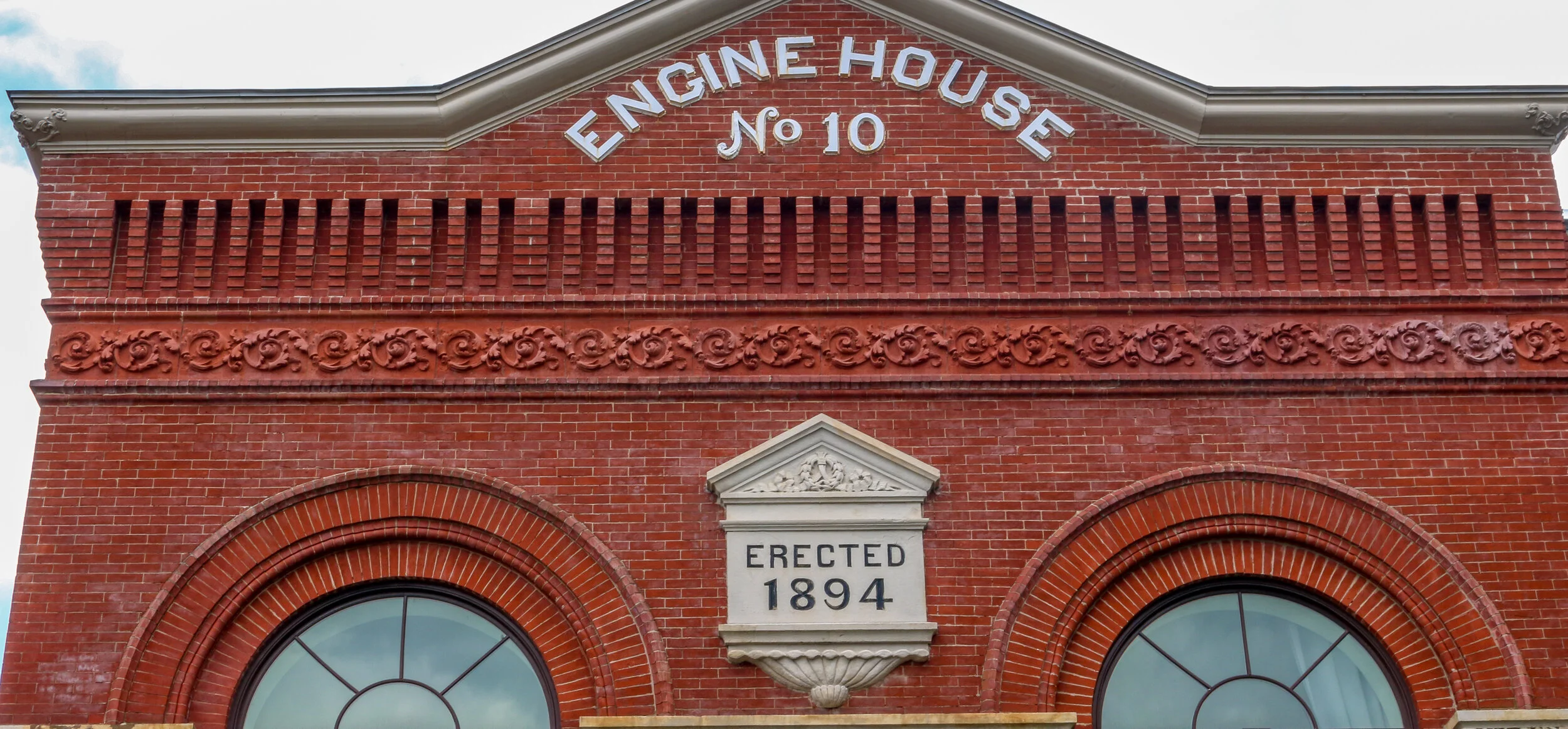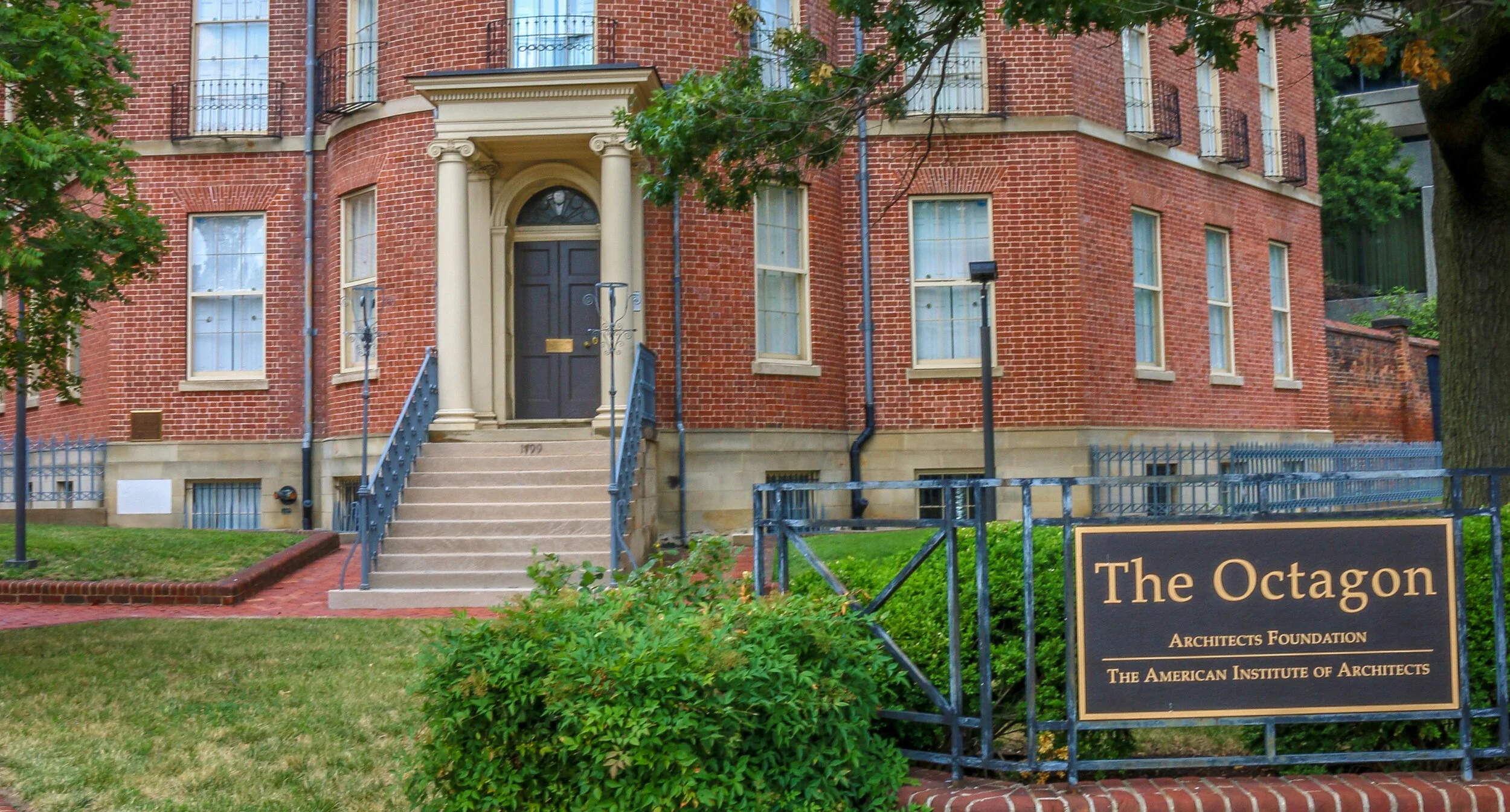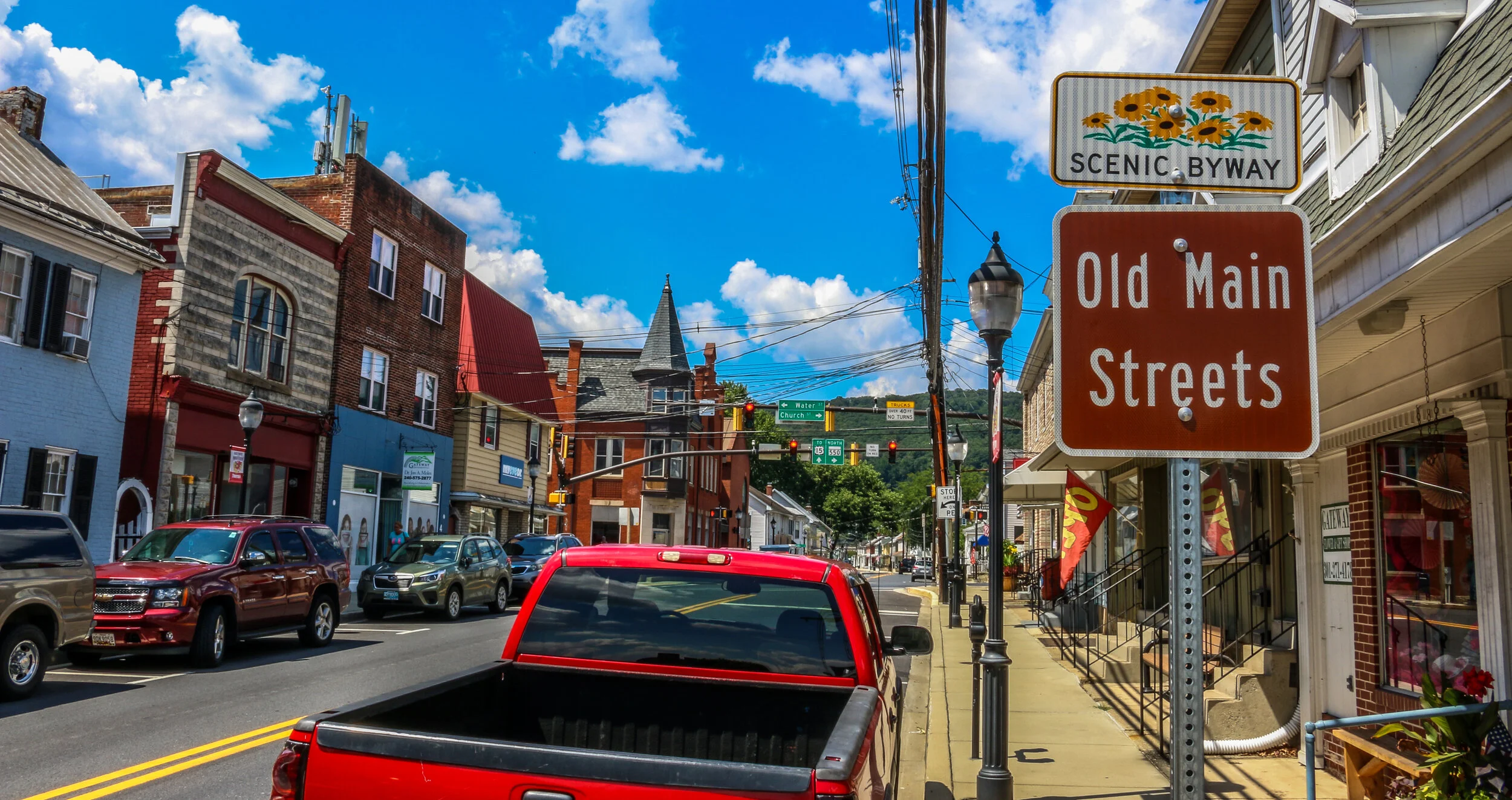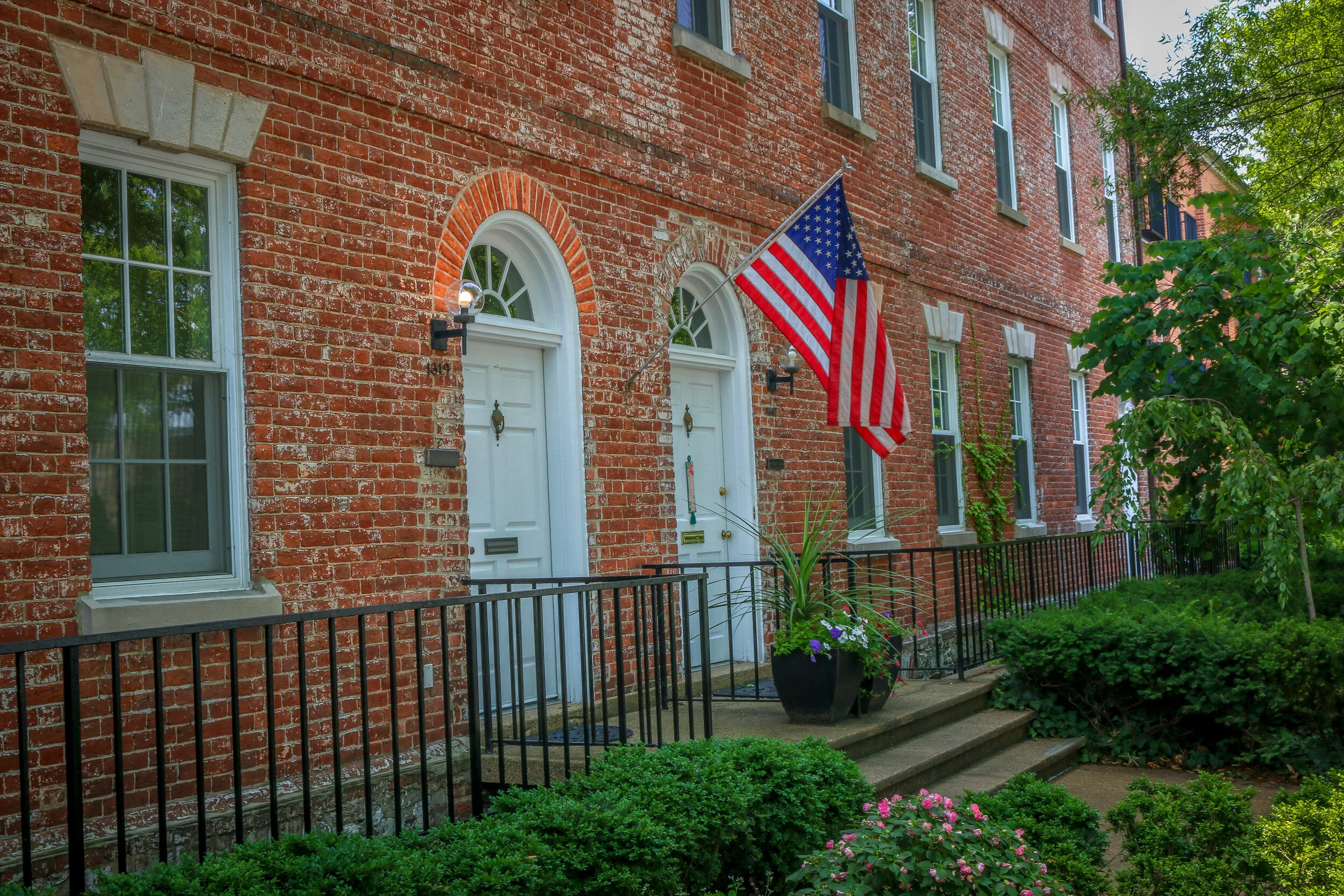In 1632, King Charles of England granted a charter for a huge tract of land in what was then the colony of Maryland to Cecilius Calvert, the second Lord of Baltimore. Within that tract was a hill known as Jenkins Hill which today we know by its far more famous name: Capitol Hill. In 1663, lawyer George Thompson acquired 1800 acres from Lord Baltimore and leased the land to future Proprietary Governor of Maryland Thomas Notley for 1000 years at the rental rate of “40,000 pounds of tobacco and one pepper corn” per year. Notley called his plantation Cerne Abbey Manor.
Cerne Abbey Manor would remain in Thomas Notley’s family for several generations and eventually was inherited by his great-great-grandson Daniel Carroll. When Washington D.C. was established, Daniel Carroll ceded Jenkins Hill to the Federal Government, and later received part of that land back which he then leased to Robert Sewall. On that lot was a small one-room farmhouse which had been built perhaps as early as 1750. Sewall built a considerably larger house facing the newly designated B Street (now Constitution Ave), keeping the farmhouse as his kitchen. It is likely that this house was completed around 1800. The architect of the house is unknown, but there is some conjecture that the designer was Leonard Harbaugh, who we remember for his designs of Old North for Georgetown University, the old U.S. Treasury Building and Holy Trinity Church and who is buried in D.C.’s Congressional Cemetery. Sewall had this house built as his “town house” but soon thereafter his uncle died and left him a large tobacco plantation in Southern Maryland called His Lordship’s Kindness. The fact that the manor house on that plantation was designed by Harbaugh lends some further credibility to his designing the Sewall House.
Because Sewall was busy sorting out his newly inherited plantation, the house was leased to Albert Gallatin who served as Secretary of the Treasury under Thomas Jefferson and James Madison. A disproven rumor once existed that the Louisiana Purchase was signed in the house while Gallatin was in residence there, but it would certainly have been an important discussion around the dinner table, perhaps with Thomas Jefferson himself in attendance. Gallatin lived in the house from 1801 to 1813 and after he left, Sewall left his son, William, to watch the house, but it is unlikely that William ever lived there.
After the Battle of Bladensburg in the War of 1812, British troops marched towards Washington. It is believed that shots were fired from inside the Sewall House, marking the only American resistance to the invasion of the Capital. Whether shots were fired or not, the British did set fire to the house which lends credibility to the story because as we learned when discussing the Octagon House in this series it was not British policy to burn private residences. Regardless, the house did burn and Sewall rebuilt it in its current form soon after the war making some small changes to the original design. He applied for reimbursement for this work from the U.S. government, but his application was denied. Robert Sewall died in the house in 1820, leaving it to his wife and four daughters…
Hello Everyone, another week has come and gone as I continue to wait patiently for an end to the pandemic. We’re already halfway through September which is really hard for me to believe. Next week will be week 26 in this series, marking half a year since I turned my headlights towards home and chose to wait this pandemic out here in D.C. Some of that time has passed really slowly, and yet it doesn’t feel like I’ve been here for six months at all. I’m still just trying to make the best of it. As always, I’m very grateful to my folks for having me and giving me a safe harbor through this storm. It’s not how I would have chosen to spend my 2020, but as the saying goes: life is what happens when you’re making other plans.
I’ve spent a lot of time this week with young Mason as we set out on our daily adventures into the neighborhood together. This week we’ve crossed mighty rivers (or maybe just meandering streams), faced off against fierce (decorative stone) lions and ventured deep into the heart of darkness (aka Glover Archbold Park). He’s added some letters to his knowledge base – “E” (for elephant) and “O” (for Ohio) and is getting closer to understanding how many three is. It’s truly special and remarkable to watch him grow and learn and discover and I think every day he learns something from me, and I learn something from him. It’s great when he sees a bumblebee or a butterfly and the way he points it out to me is like it’s the single most remarkable thing that’s ever existed. When he’s really enjoying something, he just coos which is one of the best sounds on earth. He loves big trucks and busses, and it’s fun for us when the bus drivers honk their horns and wave back to us. We continue to have a really good time together and every day is a new adventure.
Last Friday my folks and I once again retired to the basement for our weekly Forget-About-It Friday festivities. We started out this week with a brewing session as we had to get our Oktoberfest brewed if we want it ready to drink by October (which is fast approaching). Then we relaxed into a Renaissance Night in Sherwood Forrest with beer, roast turkey legs, breads, meats and cheeses. We listened to some great old music, played a fun game of Gluckhouse, and generally had a merry old time. It was another successful night.
Bryce Canyon National Park is one of the most striking and beautiful places in all of North America, and I’ve seen a lot of beautiful places on this continent in my 14 years as a cross-country tour guide. My very first visit to Bryce was back in May of 2000 and I had truly never seen anything like it in my life. It felt like I had arrived on some alien landscape. Unlike Grand Canyon, it seemed as though I could take in Bryce in one sweeping view, but yet my mind couldn’t comprehend how such a beautiful and fragile landscape could exist at all. It was truly striking. The awe I felt at that first breathtaking view out over the canyon has only grown with each subsequent visit, and there have been many in the intervening years although not as many recently as I would have liked. To hike among the Hoodoos, as the colorful spires are called, is the best way to experience the park and gain a better understanding of the scale of the formations. While beautiful at any time of day, the colors are most vivid at sunrise which is definitely the best time to visit the park. Be sure to bring your jacket though because at 8,000’ above sea level, Bryce is cold even in the middle of summer. In winter it can be downright brutal, but the snow makes an incredible contrast to the pink and orange spires. Bryce Canyon is one of my very favorite National Parks and is worth the drive to get there. You can get a good feel for the park with one full day to spend there, but I would definitely recommend an overnight stay so you can be there for sunrise. To find out more about Bryce Canyon National Park, visit the park’s website here. I hope you enjoy these photos I’ve taken over the years on my many trips to the park.
Hello Everyone, well, September is getting into full swing and I’m certainly enjoying the cooler temperatures here in Washington D.C. Summertime flowers are starting to disappear and I know that the leaves aren’t too far from starting to turn. I don’t know about you, but I’m ready for it.
It’s been another quiet week here on the home front. Mason and I continue our adventures together in the woods, throwing rocks in the creek and talking about the leaves and the trees. Shadow Catcher is all fixed and ready to get back out there when the time is right. Many thanks to Flower Hill Automotive in Gaithersburg for doing an amazing job with the brakes and the seals – I would definitely recommend them to anyone in the D.C. metropolitan area. In my spare time I’ve been sitting outside and enjoying the transition weather – cool enough to be out there and warm enough to be enjoying it. I’ve been reading Pirate Hunters by Robert Kurson and really enjoying that as well. It’s the story of the search for the Golden Fleece, the ship of the legendary pirate Joseph Bannister. Kurson wrote one of my favorite books of all time, Shadow Divers, and this is a wonderful follow-up to that story of the quest to identify a sunken World War II German U-Boat they found off the coast of New Jersey. If you’re a diver or a boat or pirate person, I definitely would recommend these books. I miss scuba diving and will definitely be hitting a beach and some reef as soon as all of this is over. Other than that I’ve been keeping up with my walks and trying to make the best of things as usual.
Over the weekend I found out that one of the tour brands I’ve worked for for many years, Trek America, has decided to fold entirely. This is a shame because it’s a company that’s been around since before I was born and I had thought it would be there long after I’m gone. Catering to young, independent travelers, I always enjoyed running Trek trips and will miss not having the opportunity to do so in the future. I really don’t know what my corner of the travel industry will look like on the other side of all of this, but this is one more nail in the coffin of my guiding career. I know I’ll find a job, but it’s a shame it won’t be with the same people and same clientele I’ve been with in the past. C’est la vie, I guess. I saw the writing on the wall, but it was still sad to hear the news. I was interviewed about the closure for Frommers, and you can see the story I was quoted in HERE if you’re interested.
Friday we had another great weekend kickoff party in the basement. This week took us back to the islands for another pirate party (pirates and the islands have been on my mind lately). I went out to grab some delicious bake and shark, a traditional Trinidadian meal, from a nice little Caribbean spot called the Crown Bakery on Georgia Avenue not far from home. It didn’t sit well with my mom, but I enjoyed it. We also had some rum and Ting (grapefruit soda), listened to some Bob Marley music and played a few games of Threes. It was a fun night and a great way to kick off the weekend.
The Potts-Fitzhugh house at 601-607 Oronoco Street in Alexandria is one of the most interesting houses still standing in the area. Known most famously as the Boyhood Home of Robert E. Lee, the house’s history goes much deeper. The house was built in 1795 in what was then the Alexandria section of Washington D.C. for John Potts. Potts was the secretary of the Potomac Canal Company, which was attempting to link the Potomac and Ohio Rivers with a canal around Great Falls. Potts was an old friend of George Washington who visited the house often and sometimes even spent the night during the year Potts resided in the house.
Potts lived in the Oronoco Street house for only about a year, and then sold it to William Fitzhugh, a wealthy Virginia tobacco planter and racehorse breeder who was looking for a city home. Fitshugh owned beautiful Chatham Manor in Fredericksburg which was right down the road from Ferry Farm, the boyhood home of George Washington. The two had served together in the Virginia House of Burgesses before the Revolution, and remained friends. In fact, Washington dined with Fitzhugh at this house on Oronoco Street just one month before he died, on his last visit to Alexandria. Fitzhugh was married to Ann Randolph and the couple had three children. One of their children, Mary Lee Fitzhugh, would grow up to marry George Washington Parke Custis, a grandchild of Martha Washington from her first marriage. The wedding took place in the parlor on Oronoco Street. George and Mary Lee had one daughter, Mary Anne Randolph Custis, who would grow up to marry Robert E. Lee in 1831, two years after he graduated from West Point. During the Civil War, the Lees would take refuge on the Fitzhughs’ country estate, Ravensworth, which they built after selling Chatham. When William Fitzhugh died in 1809, his city home on Oronoco Street passed to his son, also named William, who would rent it to the house’s most famous occupants: Henry “Light Horse Harry” Lee and his family which included then five-year-old Robert E. Lee.
Robert E. Lee was born in Stratford, Virginia in 1807, but he moved with his family to Washington D.C. in 1810, when he was just 3 years old, and lived at 611 Cameron Street in the Alexandria section. In 1812, they moved to this house on Oronoco Street where they lived for the next four years. The Lees would move to 407 N. Washington St. in 1816 but returned to the house on Oronoco Street in 1820. On October 14th, 1824, the Marquis de Lafayette was in Washington and wanted to visit his old Revolutionary War friend “Light Horse Harry” Lee’s widow and children,so he stopped by their home on Oronoco Street. Lafayette met 17 year-old Robert and no doubt told him of his father’s heroism in the Revolution. Robert lived on Oronoco St. until he departed for West Point in 1825 on the recommendation of William Fitzhugh the younger. When Robert left, his mother and two sisters moved across the river to Georgetown, but the house on Oronoco Street would be inhabited by other members of the Lee family for the next 62 years until it was sold to the Burson family in 1887. During the Lee family’s tenure there, Alexandria was retroceded to Virginia. One can only speculate on the fate of Robert E. Lee and the nation had his boyhood home remained a part of Washington D.C…
Hello Everyone, September is upon us which means fall is right around the corner here in Washington D.C. We’ve gotten some rain here this week which has brought the temperatures down quite a bit, and cooler temperatures is more than welcome in my opinion. I’m not used to being here in the summer and the heat and humidity is a bit much to take, especially without the normal joys of summer like concerts, festivals and fairs. I spent my days this last week with my 2 year old buddy Mason and we’ve continued to hang out in the park, throw the ball around, play with his trucks, look at insects and flowers and have a good time. We laugh a lot and it’s really amazing to see him changing and growing day by day. He’s an absolute joy to spend time with and it’s been a treat to do just that. He’s been keeping me busy, but I’ve gotten out to do a few things this week which has been great as well.
Last Wednesday we celebrated my step-father’s birthday with some delicious steaks, cakes, champaign and a viewing of the classic film American Graffiti. It was a wonderful night and I’m happy to be home with him to celebrate it.
Thursday night I had a Zoom session with some of my friends from college which was also really great. They’re all good guys and it’s nice that we’re still in touch 20 years + down the road. We still spend a lot of time laughing which is important. There were a lot of Zoom sessions going on when all of this started, but the summer has put an end to many of them as my friends have been trying to have safe and distanced vacations and keep their kids learning and growing without summer camps and programs. Hopefully we will get some of them going again as school gets back in session and the cooler weather arrives. I really miss seeing people in person, but Zoom is better than nothing.
I grew up a block away from a firehouse, Engine Company #31, here in Northwest Washington D.C. When you grow up that close to an active station, sirens and horns are a part of your everyday existence. It becomes a part of you. Perhaps for that reason, I’ve always had a thing for old firehouses, and in this post I’ve set out to see some of the classic ones my city has to offer.
The Vigilant Firehouse in Georgetown, which was built in 1844 for a private fire company founded in 1817, is Washington D.C.’s oldest standing firehouse, although it hasn’t been in service since 1883. Most of the city’s early fire departments were private companies usually staffed by volunteers. It wasn’t until 1871 that Washington created a city-wide professional fire department. Over the last 150 years, many beautiful and sometimes ornate firehouses have been built across the city. In more recent years, some of the old ones have been retired and flashy modern stations have taken their places. While this is a good thing for those brave men and women who work in the field as they need and deserve modern equipment and facilities, it is still sad to see some of the old firehouses retired. Some have found new life as gyms, restaurants, churches and even apartment houses and condominiums while others sit quietly empty, fading into the cityscape. In this post I’ve tried to capture some of the classic firehouses of Washington and some of the small details which caught my eye when I visited. These old firehouses are from every corner of the city and I really enjoyed tracking them down to shoot this spread. I’d love to hear your memories of any of these old houses or to go find any I may have missed. Please comment in the section below. Many thanks to all of our wonderful D.C. firefighters, and to firefighters everywhere for your amazing and selfless dedication to the communities you serve.
On a strangely angled corner lot just a couple of blocks from the White House, at the corner of New York Avenue and 18th Street, sits the beautifully designed Octagon House, one of the city’s oldest and most architecturally celebrated homes. The house was designed and built as the winter home for Colonel John Tayloe III, one of Virginia’s wealthiest plantation owners, and for a few months in 1814 served as the Presidential Mansion after the burning of the White House.
John Tayloe III was born on his family estate, Mount Airy, in 1770, the only boy in a family of 11 children. John’s father died when he was just 9 years old and after receiving an education in London he became the soul heir to the estate. In 1792, John married Ann Ogle whose father, Benjamin, had served as the 9th Governor of Maryland. The two would have 15 children of their own. The Tayloe fortune was made primarily through farming, shipbuilding and ironworks, but they were also some of the country’s earliest racehorse breeders. Tayloe was a fine horseman himself and served in the Dragoons under the commands of George Washington and Henry “Light Horse Harry” Lee during the Whiskey Rebellion in Western Pennsylvania. Later he served as a commander of the Cavalry of the District of Columbia. Just before the turn of the century, Tayloe was looking to build a winter residence in the city and had his sights set on cosmopolitan Philadelphia. His friend George Washington convinced him to build in the new Capital City instead. And so it was that John Tayloe III purchased Lot 8 in Square 170 to build his winter home within view of the White House.
There is some debate as to who designed Octagon House with the credit generally given to William Thornton who drew up the original designs for the U.S. Capitol. It is possible that the house was designed instead by our old friend William Lovering who designed several of the other houses in this series and many in early Washington. Regardless, it was Lovering who oversaw the construction of the home, thought to be a high point of the Federal Style of architecture. Needing to fit into a sloped, angled lot the house would be designed with amazing simplicity incorporating a circle, two rectangles and a triangle into the plan.The house was completed in 1801 and it is interesting that the Tayloe family chose to call it “Octagon House” since it only really has six sides. In addition to Mount Airy in Virginia, the Tayloe family also owned a 205 acre farm a few miles north of Octagon House called Petworth (from which today’s neighborhood in that area gets its name). Much to my delight Tayloe also built a racetrack just behind Lafayette Square and a stone’s throw from the White House.
Hi Everyone, well the last week of August has certainly snuck up on us. Summer is usually such a busy time for me, and this year it just wasn’t so it seems to have flown by. This week brought some very good news from the local side of Washington D.C: a new baby panda was born at the National Zoo. The pandas are very near and dear to our heart here in Washington and have been since Ling Ling and Hsing Hsing first arrived in 1972. I grew up alongside those two, and the city mourned their loss when they died. The two never had any babies which survived more than a few weeks. Thankfully we were able to bring two young pandas to Washington after they passed, and Tian Tian and Mei Xiang have had five babies, two of which lived to adulthood and have gone back to China. This new baby, as yet unnamed, is a bit of a surprise at their age, but we welcome it with open arms and pray for its survival. The next few weeks will be critical, so we’re keeping it in our prayers and in our hearts.
I’ve been spending more time with my two year old buddy, Mason, and we’ve been having a lot of fun together. His dad has pointed me to one of their favorite spots in Glover Archibald Park where we can sit by the stream and throw rocks in the water. It’s a peaceful place where we can hang out outside but in the cool creekside shade and listen to the cicadas. On the way there and the way back we look at all the different colored flowers in peoples’ yards and keep an eye out for bumblebees and butterflies – two of his, and my, favorites. Sometimes he rides his bike while I run alongside. Our days are full of singing and laughter and it’s been really wonderful to hang out with him. He’s been keeping me busy though and wears me out, so I haven’t been up to too much else this week (which is just fine with me).
Last Friday night we paid tribute to another lost rite of summer: the county fair. We gathered outside for some fried cheese and corn on the cob and shared a six pack of assorted beers with fair-like themes (many from Clown Shoes Brewing Company). Then we moved inside where we had a dime-toss, played some dice games, enjoyed some grilled sausages and chocolate eclairs and had a couple more beers. It definitely wasn’t as much fun as the real thing, and we missed the lights and sounds of the carnival rides and games, the animals, crafts and produce, but we had a pretty good time all things considered.
Maryland’s Old Main Streets Scenic Byway is a wonderful trip through some of the state’s most charming and historic towns. The byway begins in Emmitsburg where Maryland’s Catholic roots are on display at the incredible National Shrine to Our Lady of Lourdes and the Minor Basilica Shrine to St. Elizabeth Ann Seton. Both are beautiful places worth spending some time and it was definitely interesting to learn about Elizabeth Seton, the first person born in what would become the United States to be canonized by the Catholic church.
From there, the byway travels through historic Taneytown and on to Westminster, although since we were a bit pressed for time we headed straight to New Windsor. New Windsor is such a cute little town with beautiful Victorian homes and pleasant small-town feel. We stopped to pick up lunch at Uncle Matty’s Eatery and enjoyed it in the town’s small park.
After lunch we traveled on to Union Bridge where the beautiful old railway station has been converted into a museum. It was another quiet and pleasant town for a wander. The byway finishes in Thurmont with it’s beautiful old Main Street. log cabins and the Roddy Road Covered Bridge.
The Old Main Streets Scenic Byway is a pleasant way to while away a day and enjoy some small-town Americana. There are wonderful historic homes and businesses along the way, and it seemed like there would be some interesting museums under normal circumstances. I hope you enjoy these photos from the Old Main Streets of Northern Maryland…
Unlike most of the other properties I’ve featured in this series, Wheat Row hasn’t had any really famous residents. Nor has it hosted presidents or had any major historical events take place within its halls. If anything, it is reminiscent of how the regular people lived in the early days of Washington D.C. - just a common set of row houses set along an ordinary street.
The four connected townhouses which make up Wheat Row were built around 1794 and designed by architect William Lovering, whose architecture has featured prominently in this series so far. Even when they were built, the Georgian architectural style was considered out of date. People found the houses “small and poorly constructed of inferior materials”, and yet there they stand, 225 years later.
Wheat Row takes its name from one of its early residents, John Wheat, who lived in 1315 as early as 1819. Wheat was a local designer of gardens in the city and was listed in one census as a congressional messenger. He would later purchase 1319 and 1321 as well and his family lived along Wheat Row until a few years after the Civil War.
This house was built in 1794 and designed by architect William Lovering who is also credited with designing the Thomas Law House (featured last in this series), The Maples (which will be featured next), the Octagon House and Wheat Row, both of which will be featured later in this series. The house was designed in the Federal style popular at the time and was built as a double house, occupying 468 and 470 N. St. SW.
The lot on which the house was built was originally owned by Notley Young who deeded it to the City Commissioners when the site of the federal city was first determined. Captain William Mayne Duncanson, a wealthy merchant who came to Washington from Europe on a boat with Thomas Law in 1795, lived in the 470 half of the double house from 1795-96. He lived in the house while awaiting his new home, later known as The Maples, was being built on Capitol Hill. The Maples will be featured next in this series.
Several years later, the other half of this house was occupied by William Cranch. Cranch was the son of Mary Smith whose sister was Abigail Adams, making William the nephew, by marriage, of President John Adams. William married Nancy Greenleaf in 1795 and had four sons and three daughters. Their great-grandson was poet T.S. Elliot
A Harvard educated lawyer, Cranch moved to Washington D.C. in 1791 where he worked in private practice for 10 years. From 1800-1801 Cranch served as a City Commissioner for the District before being nominated by his uncle, John Adams, to serve on the newly established U.S. Circuit Court for the District of Columbia

